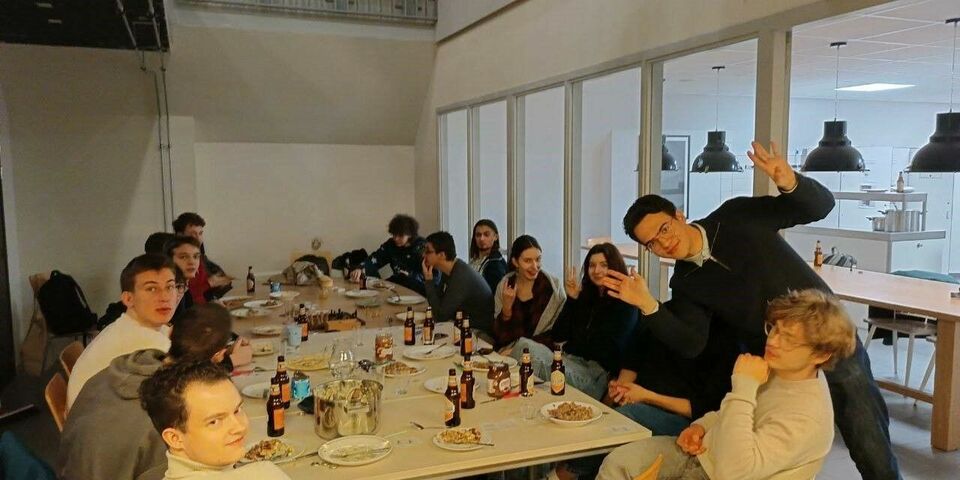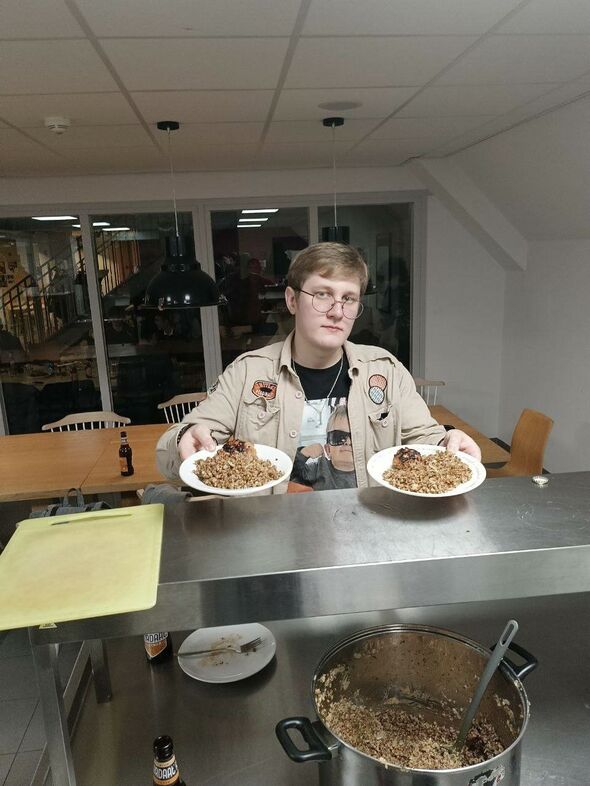Bringing Eastern European Culture to TU/e
For Danila Solodennikov, a second-year master’s student in Data Science & AI, Eastern Europe is more than a region—it’s a sense of home, unity, and warmth. Despite bureaucratic hurdles, Solodennikov is determined to establish a new student association celebrating Eastern European traditions. “I want to show everyone that Eastern Europe is more than politics—it’s a welcoming, vibrant culture where everyone can feel at home.”
There is a fairly large Eastern European community at TU/e, but until now, there has been no place for its members to bond and showcase their culture and traditions. Danila Solodennikov, who hails from Russia, saw this as a missed opportunity. That is why he came up with the idea of founding a new student association centered around Eastern European culture. His vision goes beyond raising cultural awareness: with the association, he aims to provide a haven for students who feel disconnected while studying abroad. “A lot of people are homesick. I want to help them feel they’re not alone,” he explains. The focus will be on connecting students through shared experiences, food, and events that celebrate the richness of Eastern European traditions.
The initiative also seeks to bridge cultural gaps. The initiator believes that food and conversation can break down barriers and stereotypes: “We’re not about politics—we’re about uniting people from all over the world. Let’s sit at one table, enjoy good food, and have a great time.”
Welcoming community
Though still in its early stages, the association has already sparked considerable interest. The first event, held just a few weeks ago, drew around 30 attendees, including students from Lithuania, Ukraine, Belarus, Poland and Russia. Solodennikov recalls: “It was amazing to see everyone enjoying the evening, sharing dishes they’d never tried before and connecting with each other.”
Among the attendees were also people from Egypt, Germany, Kazakhstan, and many other countries. The association, named Pes & Lis (after a Slavic fairy tale, meaning ‘Dog and Fox’), welcomes everyone, not just Eastern Europeans. “Eastern Europe is well known for its hospitality, so our purpose is to be a very welcoming community that’s open to everyone,” he emphasizes.
Hurdles
Setting up a new association comes with its fair share of hurdles. “There are so many procedures and no clear instructions,” the founder says. Legalization alone requires an official address, a bank account, and registration with the Dutch Chamber of Commerce (KvK). But there’s a striking paradox: “You need an address to be legalized, but you can only get an address after your legalization.”
The process is also costly. Legalization costs approximately €600, which the group will have to cover out of their own pockets. The student already used his own money to host the first event, as no university funding is available yet.
Securing a venue presented its own difficulties. “We were fortunate that Scala made an exception and let us use their space, even though we’re not officially recognized,” he shares. While existing associations benefit from university support, newcomers like Pes & Lis face unclear pathways and significant challenges. “We also reached out to Cosmos, the International Student Association, but they were unable to help us. They weren’t sure about the necessary steps to make it happen either,” he says. “Sometimes, it feels like fighting alone.”
Hospitality
What makes Eastern European culture unique? For Solodennikov, it’s the sense of warmth, hospitality, and togetherness. He compares it to visiting a grandmother’s house: “You sit on the sofa, enjoy homemade food, and feel completely at ease. That’s what we want to recreate—a place where people feel comfortable and cared for.”
Sharing good, homemade food holds an important place within the association—just as it does in Eastern European culture. In addition to traditional dishes, the association plans to host trivia games and discussions about Slavic history, literature and art. “There’s more to Eastern Europe than politics,” he insists. “We want to showcase the beauty of our traditions and the kindness of our people.” He believes that anyone who decides to attend one of their events will have a great time. “We are energetic, spontaneous, and fun.”
The group also takes care to avoid polarizing topics, focusing instead on shared experiences. “We have people from Ukraine, and we all get along well. Politics happen elsewhere. It’s not connected to us here.”
A taste of Christmas
The upcoming Christmas-themed event on December 13, to be held in the Luna building, marks the next step in Solodennikov’s ambitious plans. Featuring festive decorations, specially dressed-up Christmas characters, traditional holiday dishes and an introduction to Eastern European customs, the evening promises to bring people together. Everyone is welcome.
With the launch of an Instagram account, the team hopes to expand its reach and attract even more participants. In the long term, the founder envisions an officially recognized association with its own kitchen space to host cooking sessions. “In restaurants like Hubble, you can only find fast food like burgers,” he explains. “We’d love to have our own kitchen space where we can cook healthy, homemade meals. Imagine being able to enjoy authentic Eastern European dishes like borscht right here on campus—it’s something that doesn’t exist here yet, but we hope to make it happen.”
Optimistic and committed
Despite the challenges, Solodennikov remains optimistic and committed to making his vision a reality. “When I see everyone enjoying the evening, I enjoy it too,” he says. “I won’t stop here. Even if we’re not formally recognized, I’ll continue hosting events and creating a welcoming space for everyone.”



Discussion